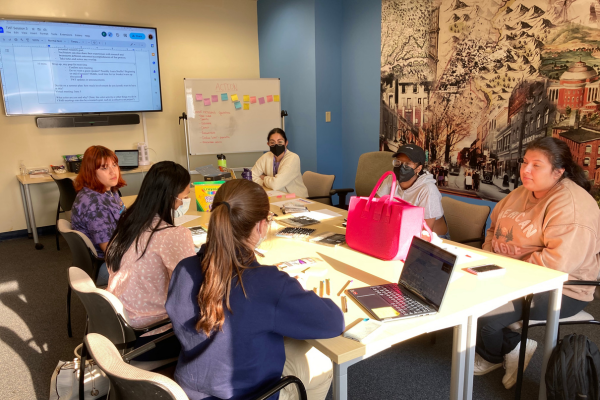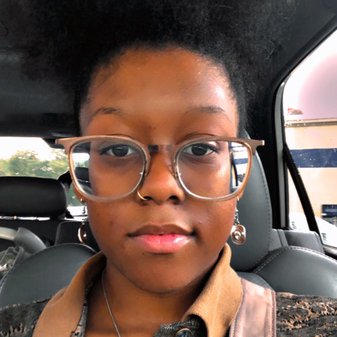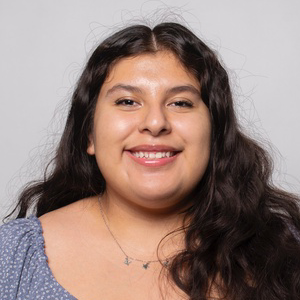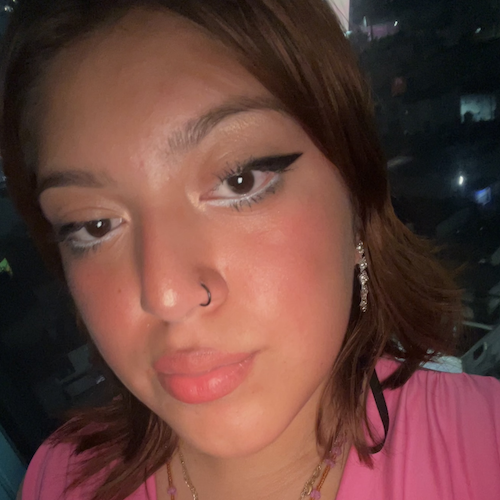By: Britney, Justus & Jessica, youth from the Teen Wellness Team
This post is the 8th publication in a YPAR series, which aims to explain participatory research, youth-led measurement and evaluation approaches, and strategies for youth-adult collaborations in YPAR.
Highlights:
- Through the YPAR Series, adults and youth have described what youth participatory action research is and why youth should be engaged in processes like it.
- This post highlights themes from this series with youth voices who have participated in Youth Participatory Action Research (or YPAR) as part of a program on mental health.
- Britney, Jessica, and Justus talk about their experiences in YPAR, what they’ve learned, how they are looking at the world differently, and more as this series concludes.

As part of the Wellness And Youth Social action (WAYS) Lab, several local high school students have been working with UVA adult researchers since March to identify a research question that addresses disparities in the youth mental health crisis. They are known as the Teen Wellness Team (TWT). Their goal is to conduct research that will shape community-based actions to promote youth mental health.
The youth team members have learned about how to conduct research, engaged in discussions about the mental health needs of young people in our community, and heard from guest speakers about different careers in health care and research. Together, the TWT has identified a research question of interest and is currently in the process of making a research plan to collect data this fall.
Dr. Irène P. Mathieu (an Assistant Professor of General Pediatrics and Principal Investigator of the WAYS Lab) and team sat down with three TWT members to ask about their experiences and what they want others to know about the YPAR process. These youth voices are shared by themes that have been presented throughout this YPAR series.
Why YPAR?
Unlike other ways of working with young people, YPAR centers youth as experts with their own agency in the research process.
- Britney says, “a lot of people should be introduced to YPAR and learn more about what YPAR is.”
- Jessica says that YPAR “…could help our community, and it would help a lot of teens.”
Benefits from YPAR
Youth benefit from engaging in participatory approaches to research and other activities.
- Justus comments, “YPAR has made me look at the world differently. Every person I see- I wonder what they’re going through. And not just youth, but adults, too. I jotted down a lot of things in my notebook. I think about things around town, places that are out of business. We don’t have a lot of teen hangout spots. I see a building and think, ‘This could be a mental health clinic.’ I really wish that youth here would do something about it, but there’s not a lot of people that would advocate for change. We need motivation. An adult running it would bring things back to where it is now. There are a lot of places that have potential, but we need agency.”
- Britney says, “it makes me think there are so many little things that contribute to a greater idea. It encourages me to think outside the box and consider the smaller parts contributing to one big thing.”
Learning in YPAR
A part of YPAR is breaking down the power structures so youth can learn in new and different ways and feel that adults are truly listening to them.
- Britney says being in a YPAR group “…changed how I think of people around me, and if people have bad attitudes or don’t look the best, maybe they had a bad day. It makes me think that we don’t know what’s going on with people. This group talking about confidential stuff, it makes me feel like I’m not alone talking about mental health. We just need a safe place to talk about this and deal with it together.”
- Justus says she’s changed by “being in the group and us talking about mental health and how to help the community. I think about people around me and wonder what they’re thinking or feeling. I normally don’t think like that.”
Advice after YPAR
Any adult working with youth can use YPAR strategies to think about the collaboration process.
- Britney says, “I think adults should know that this research is basically a bubble where people can have a safe place to talk about issues and give their opinions on stuff that matters to them. I think it’s a great opportunity for students and teenagers to be able to experience how to do research and how to just be more creative. And it just opens up their mind and makes them think more regarding issues around them and issues locally. Makes them think not only about themselves but people around them and how these issues affect their communities. They should know that this is great for their child or students if they’re interested.”
- Justus says if another student is interested in YPAR to “maybe just go for it. Don’t be nervous going into it. It’s not only a life thing, be comfortable to say your opinion. Be yourself and don’t be nervous being around new people. Have an open mind.”
YPAR Research Experiences
YPAR provides experiences for youth in research that may include understanding their community and forming questions they can test.
- Jessica says that sometimes parts of the research process were “hard. It’s hard to think of how to make up a question based on the topic or how to make the question related to the topic.”
- Britney says, “it has been a long process to choose a perfect question. It surprised me that so much has to be done to even start a research question. But I think it will turn out great. [I started to] notice that there are small things that we have to be attentive to.”
Reflections on YPAR
Other youth who have participated in YPAR also shared their reflections in this series.
- Justus says, “at first it was nerve-wracking because I’m not the type of person to really talk to people let alone talk about my feelings or opinions. Being in this group has helped me come out of my shell and not only see and hear other people’s opinions. Being in this group is cool.”
- Britney says “YPAR made me think more about the connections to everything. Usually, we think about a general idea rather than the little parts that tie the idea. YPAR has helped me think even greater outside the box and think of those little parts that tie the idea together.”
Missed a post in the YPAR series? Check out all the tips and resources:
- The Benefits of Engaging in Participatory Approaches to Research
- Why Young Investigators Are Important
- Youth Voices in YPAR (includes youth)
- Strategies for the YPAR Collaboration Process (includes downloadable resources)
- How Can Youth Voice Amplify Research? Listening & Leadership Are Key
- 4 Universal Facilitation Tips for YPAR Collaboration
- Asset & Power Mapping as Tools for Youth-Led Research (includes downloadable resources)
- Why YPAR Matters: Youth Are “Looking at the World Differently” (includes youth)
If you have any comments or questions about this post, please email Youth-Nex@virginia.edu. Please visit the Youth-Nex Homepage for up to date information about the work happening at the center.

Author Bio: Justus is a recent 2023 graduate of Charlottesville High School (CHS). She was a student in the CATEC EMT program, and is a current member of the TWT. In her spare time she enjoys spending time with her family and friends, traveling, listening to music, and learning new languages. She is open minded and understanding.

Author Bio: Britney is a freshman at James Madison University and majoring in psychology. She is involved in mental health research as a member of the Teen Wellness Team to find resources to help my community.
.

Author Bio: Jessica is currently attending Charlottesville High School and attended CAYIP last summer. She likes to get involved in programs that offer new experiences. Jessica is also a member of Teen Wellness Team. She loves to spend time with family, painting, listening to music, and organizing.
